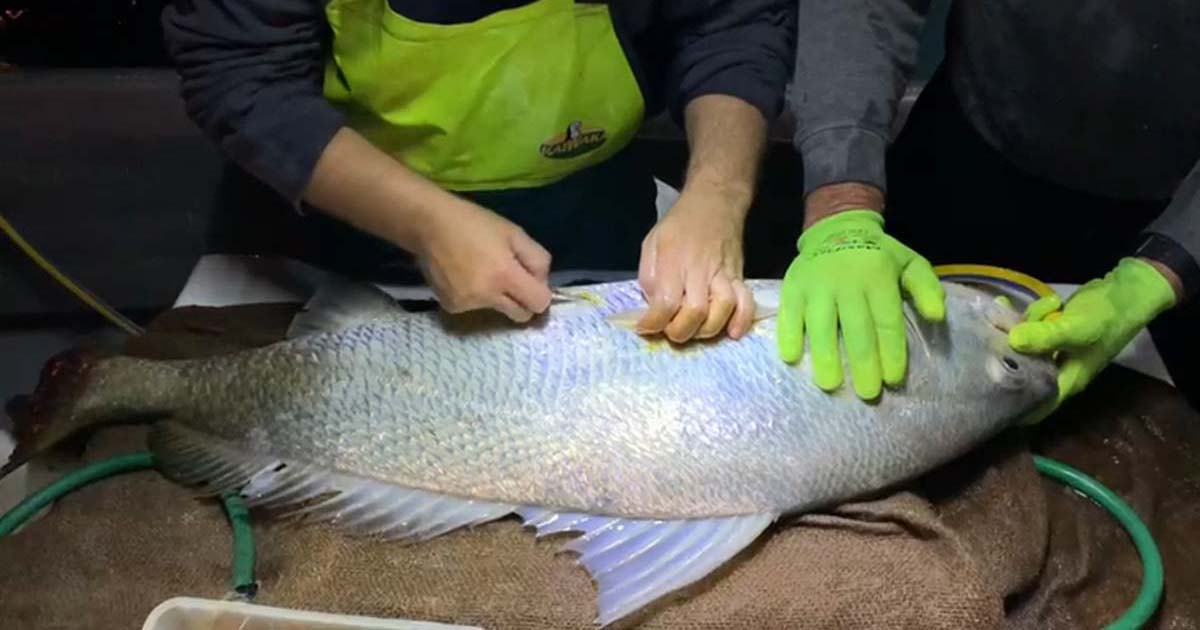Dalrymple Bay Coal Terminal Pty Ltd (DBCT P/L) is helping researchers understand the dynamics of the regional black jewfish population as part of a joint government led project. This includes a financial contribution of more than $30,000.
The project involves the tagging and tracking of jewfish to understand the residency, movement, and connectivity of jewfish populations to inform future management ensuring the sustainability of the fishery.
To achieve this, DBCT P/L is working in collaboration with the Queensland Department of Agriculture and Fisheries, James Cook University, Biopixel Oceans Foundation, and the Australian Institute of Marine Science.
Human built infrastructure, such as port facilities, are known as some of the key coastal habitats that black jewfish aggregate around, and DBCT P/L’s offshore infrastructure is identified as a key location for tagging and deploying receivers to track fish movements.
Currently, two acoustic receivers are deployed under offshore infrastructure and these receivers also contribute to the Australia-wide Integrated Monitoring Observing System. This program provides systematic and sustained observations of Australia’s marine environment. The acoustic receivers along the Queensland coast make up part of the national Animal Tracking Facility of this system.

The deployed receivers not only support directly in the black jewfish work, but also greater connectivity across the state for a variety of tagged species. All data collected will be stored in the Animal Tracking Facility database.
DBCT P/L’s financial contribution to the program in the 2021-22 financial year has enabled a further 20 acoustic tags and four acoustic receivers to be added to the program ensuring its ongoing success.
Results from the monitoring program recently contributed to a relaxation on the total allowable catch of black jewfish by commercial fishers. From 1 January 2023, the Department of Agriculture and Fisheries increased the total allowable catch for commercial fishers to 54 tonnes, and recreational fishers are now able to target the species throughout the year.
The increase in catch limits was due to a new stock assessment which estimated median stock levels were at 79 per cent, well above the target of 60 per cent of unfished biomass.



